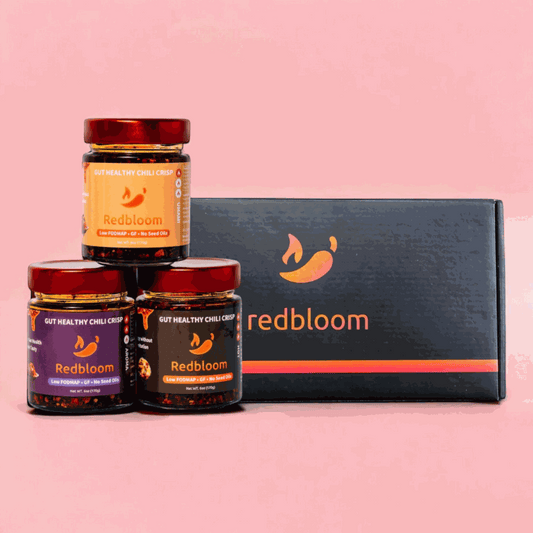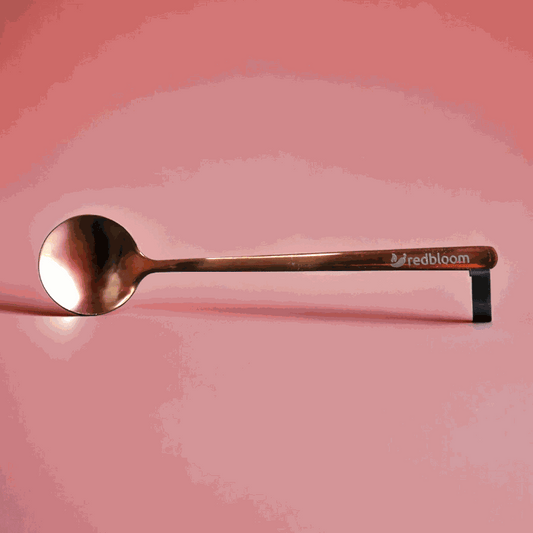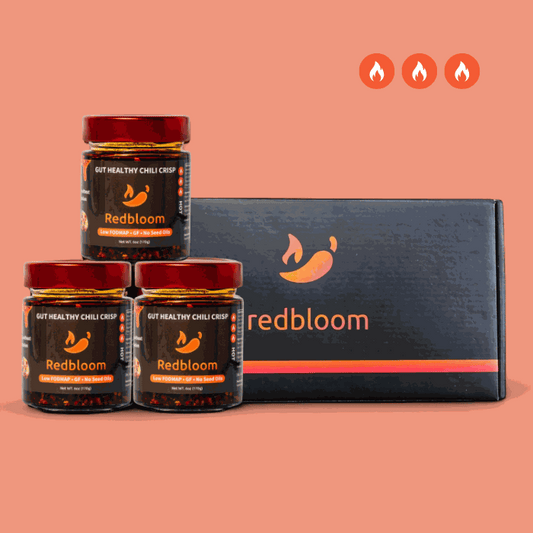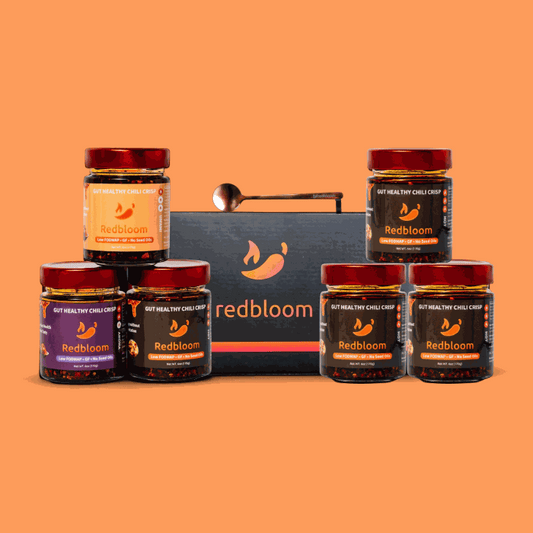Introduction
Spicy food can be thrilling, until your gut begs for mercy. Whether you're obsessed with chili crisp, challenge your friends to hot wing contests, or love a good Sichuan stir-fry, you’ve probably wondered: Why does it hit my stomach so hard? And why do I feel it again on the way out? This article dives deep into how capsaicin—the compound that gives chili its heat, affects gut health, stomach sensitivity, and yes, your poop. We'll explore what research says about the burning sensations, rapid digestion, and long-term effects of spicy foods on your gut, especially if you’re already dealing with conditions like IBS.
The Science of Heat: What Is Capsaicin Doing to Your Gut?
Capsaicin is the natural chemical in chili peppers responsible for their spicy kick. But when it hits your digestive tract, it doesn’t just passively move through, it activates a whole sensory network.
-
TRPV1 activation: Capsaicin binds to pain receptors (TRPV1) in the gut, which are the same receptors that respond to high heat [1]. This can cause a burning sensation anywhere along your digestive tract—from your mouth to your rectum.
-
Speedy digestion: This activation triggers your intestines to move faster, reducing water absorption and causing loose stools or diarrhea [1].
-
Incomplete digestion: Capsaicin isn't fully broken down by the body, so it continues to irritate the gut even as it exits, leading to burning bowel movements [1].
So yes, that fiery feeling on the toilet isn't just in your head. It's biochemistry.
Sensitive Stomachs Beware: Capsaicin and Gut Irritation
If you have a sensitive gut, you're more likely to feel the effects of capsaicin.
-
Cramping and nausea: For some, spicy food can trigger abdominal cramping, bloating, or even vomiting, especially in high doses [1].
-
Mucus and inflammation: Capsaicin may stimulate mucus production in the gut as a defense mechanism, which can lead to discomfort or urgency.
-
Varied tolerance: Not everyone reacts the same. Some people tolerate spicy food with no issue, while others may experience intense pain or digestive upset.
Those with conditions like IBS, GERD, or visceral hypersensitivity often feel these effects more intensely. Cultural dishes rich in chili can be both comforting and punishing depending on your gut’s current state.
The Long Game: Can Your Gut Adapt to Spicy Food?
Here’s the good news: repeated exposure to capsaicin may desensitize your gut over time.
-
IBS and desensitization: One study found that patients with IBS-D (diarrhea-predominant irritable bowel syndrome) experienced fewer abdominal symptoms after consuming chili daily for six weeks [1].
-
Higher pain threshold: Long-term spicy food eaters tend to build up a tolerance, meaning their gut pain receptors become less reactive.
This doesn’t mean everyone should start eating ghost peppers for therapy, but if you love heat and want to reintroduce spice after gut issues, it can be done gradually and mindfully.
Capsaicin and the Gut Microbiome: A Surprising Benefit
Beyond irritation, capsaicin might actually promote a healthier gut environment—if used wisely.
-
Microbiota shifts: Some research shows that capsaicin can increase beneficial bacteria like Faecalibacterium, which supports gut lining health [1].
-
Anti-inflammatory potential: These changes in microbiota could support immune function and reduce inflammation over time.
-
Synergistic foods: Pairing capsaicin with gut-friendly oils (like avocado oil) or fermented foods might enhance these benefits without exacerbating symptoms.
For those seeking balance, low-FODMAP chili oils or controlled doses of chili crisp can offer flavor without flare-ups.
Tips for Eating Spicy Without Regret
You don’t have to give up heat completely. Here's how to enjoy spicy food while keeping your gut and stomach happy:
-
Start low and go slow: If you’ve had gut issues, reintroduce spice in small amounts and track your body’s reaction.
-
Pair with fat or starch: These buffer the effects of capsaicin and slow down its absorption.
-
Try fermented spice: Fermented chili pastes are often gentler on the stomach and bring probiotic perks.
-
Use gut-friendly oils: Avocado oil and low-FODMAP chili oil are less irritating than seed oils for many people.
-
Mind the context: Avoid spicy food on an empty stomach or during a flare-up.
Gut health is personal. Tuning into your body—and using spice strategically—can keep the thrill without the aftermath.
FAQs
1. Why does spicy food make me poop so quickly?
Capsaicin speeds up digestion by stimulating TRPV1 receptors in your gut, which increases motility and reduces water absorption—leading to loose stools or diarrhea [1].
2. Can eating spicy food regularly help reduce gut sensitivity?
Yes. Studies suggest that gradual, repeated intake of capsaicin may desensitize gut pain receptors over time, especially in people with IBS [1].
3. Is capsaicin bad for your stomach lining?
Not necessarily. While it can irritate the gut at high doses, moderate consumption may actually improve gut microbiota and reduce inflammation when paired with the right foods [1].
4. Why does spicy food burn during bowel movements?
Capsaicin isn’t fully digested and remains active as it passes through your colon, stimulating nerve endings all the way to the rectum [1].
5. Are there gut-friendly ways to enjoy chili crisp or chili oil?
Yes. Look for low-FODMAP or avocado oil-based versions, use small amounts, and combine them with calming ingredients like rice, broth, or steamed veggies.
Conclusion
Spicy food doesn’t have to be your gut’s worst enemy. While capsaicin can irritate sensitive stomachs and speed up digestion, it also has the potential to support gut health and resilience over time. The key is knowing your body, starting slow, and making mindful choices—from the type of chili oil you drizzle to when you decide to indulge. With a little care, you can keep the flavor and ditch the fiery aftermath.
Citations
[1] "How Spicy Food Affects Your Poop, Explained by Som," VeryWell Health, UH Hospitals, NIH/PubMed sources.
https://pmc.ncbi.nlm.nih.gov/articles/PMC8909049/
https://pmc.ncbi.nlm.nih.gov/articles/PMC4102147/
https://www.jnmjournal.org/journal/view.html?doi=10.5056%2Fjnm14022
https://pubmed.ncbi.nlm.nih.gov/26011134/





